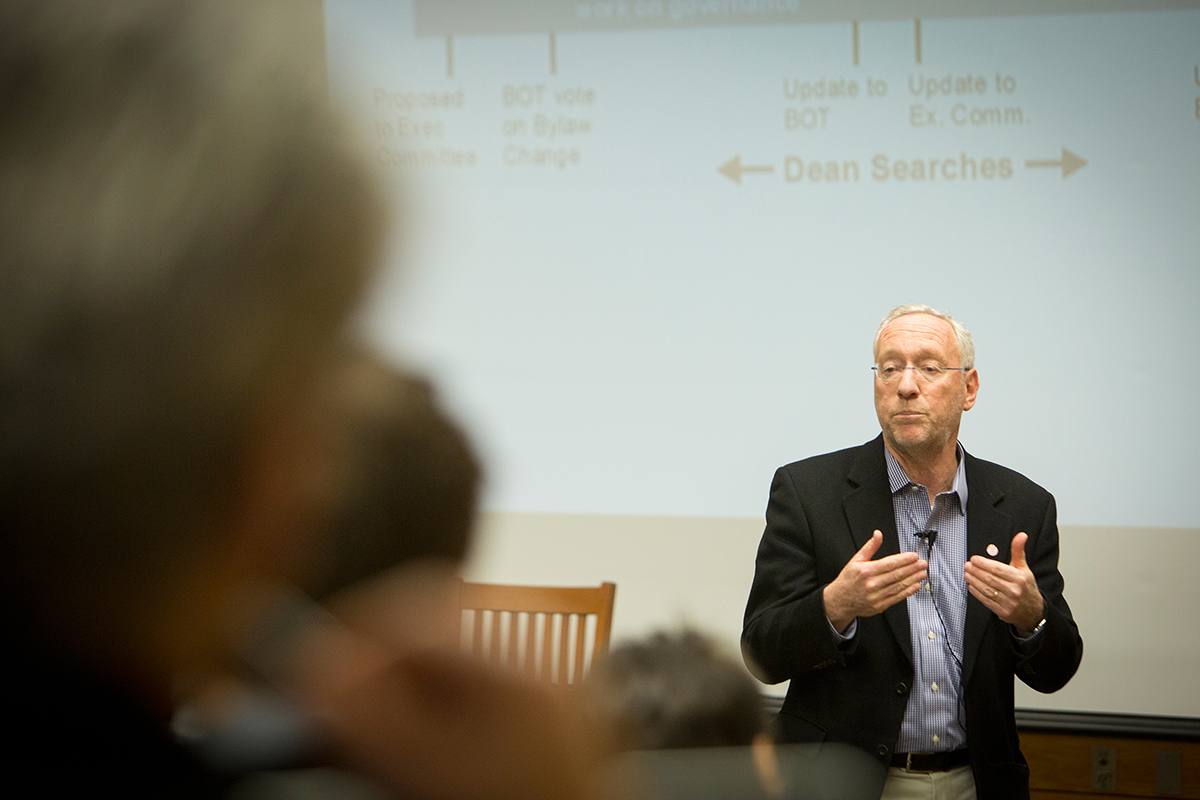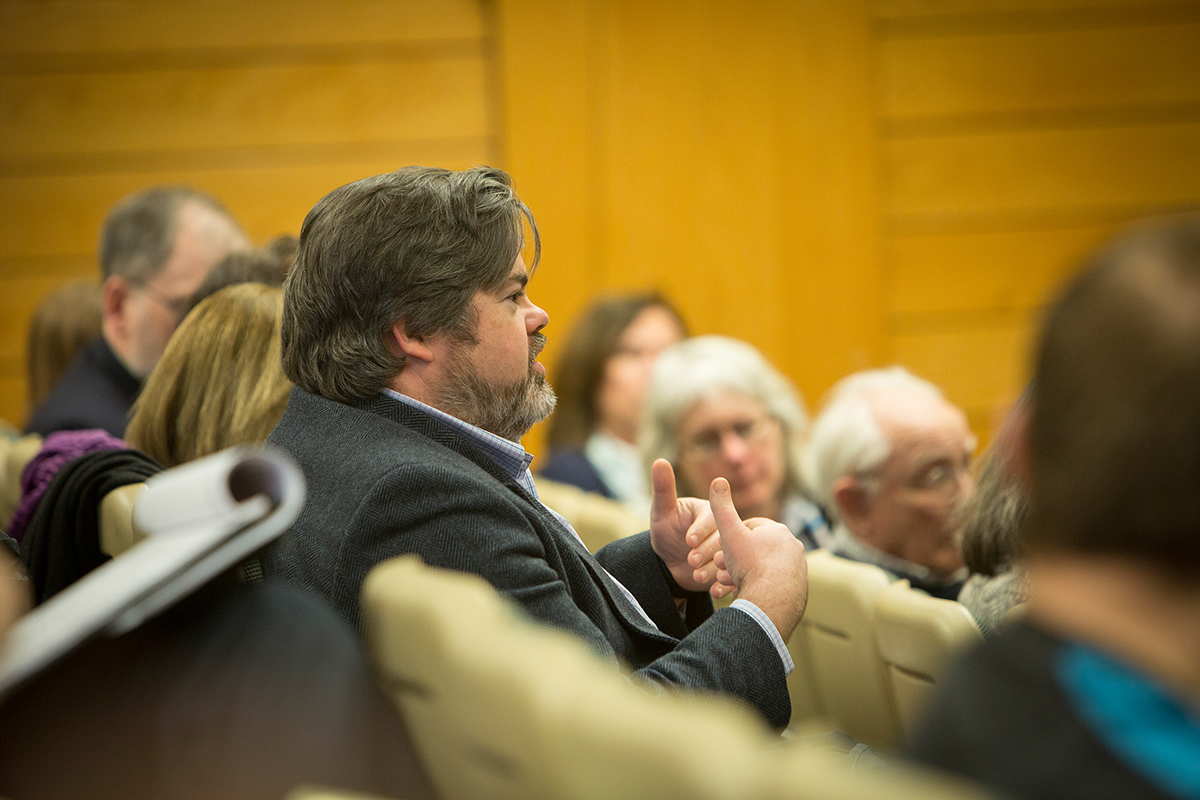Key to success of business college will be integrating faculty
By Susan Kelley


A key aspect of the College of Business’ success will be integrating the faculty of the three schools that comprise the college. Another key will be expanded programming, which is likely to mean more opportunity for staff.
Provost Michael Kotlikoff made these points Feb. 17 at an open forum about the college for faculty and staff at Goldwin Smith Hall’s Lewis Auditorium.
“The important thing is where we’re going in the future, how we can do the best job in terms of recruiting the best faculty, recruiting the best students, and providing them the opportunity to interact,” he said.
Chris Barrett, the college’s deputy dean and dean of academic affairs designate, offered an example of the benefits of integrating business faculty. At a recent informal lunch, faculty from the three schools who teach sustainability-related courses compiled a list of courses they offer, Barrett said. Half an hour later, they were still writing down courses and realized that, together, the schools likely have the biggest curriculum in business sustainability of any university in the country.
Give feedback
To learn more about the College of Business and share feedback, visit business.cornell.edu, where a presentation of the vision, rationale and process for the college and updates from committees can be found.
“None of the faculty teaching these courses was aware of that,” Barrett said. “There are just huge gaps in coordination and communication because we don’t spend time talking together; there’s frankly no mechanism to make it happen.”
Moreover, faculty at the Samuel Curtis Johnson Graduate School of Management noticed that while they have significant strengths in management and sustainability strategy, they lack environmental economists knowledgeable in environmental policy. The Charles H. Dyson School of Applied Economics and Management has exactly the opposite situation, Barrett said. “Those conversations are precisely the sorts of curricular conversations that faculty can start to engage in once we create coordinating measures that, right now, don’t exist.”
Kotlikoff also addressed faculty and staff concerns about the decision to create the college. He pointed out that several studies since 2009 have recommended unifying the business schools, and that the Cornell University Board of Trustees – including its faculty and staff representatives and alumni from all three schools – voted unanimously to create the college.
“This is a decision that has been talked about and talked about and talked about, and if we had entered into an extended debate with faculty and alumni, it would have been tremendously resisted. And this is why, frankly, previous provosts had decided not to take this step. It is something that is difficult in terms of change. … Because of this issue, we decided that we needed to get past ‘no.’ We needed the board to enable this process,” he said. Faculty will make all decisions regarding academic issues, he added.
Several questions involved the role of staff. The efficiencies gained by combining administrative functions won’t necessarily mean staff layoffs, Kotlikoff said. The Staff Synergy Committee is exploring the most effective way to organize administrative support, he said. “Staff is a major contributor to our academic excellence. But there are no guarantees here. We need to make sure we create the most efficient structures that we can, and then do the right thing by staff in terms of opportunities,” Kotlikoff said.
It’s unlikely that new buildings will be constructed to house the college. Ideally the college would launch July 1, but the administration has not set a firm deadline to give committees ample time to hammer out the details. There will be modest, short-term transition costs, but following launch the college will rely on its own resources.
Several questions involved the degree to which the schools will retain their identities. Will Dyson lose its focus on development economics? No, Barrett said, because that area is becoming increasingly important in the higher education business landscape and is one of Cornell’s strengths.
Cornell’s goal is to make a business school that is forward looking and focused on solving societal problems, not one anchored in the 20th century, Barrett said: “We have the opportunity here to remake [business education] and push the other business schools to emulate us. I see this as challenge that we can accomplish. And it’s an exciting one.”
Media Contact
Get Cornell news delivered right to your inbox.
Subscribe